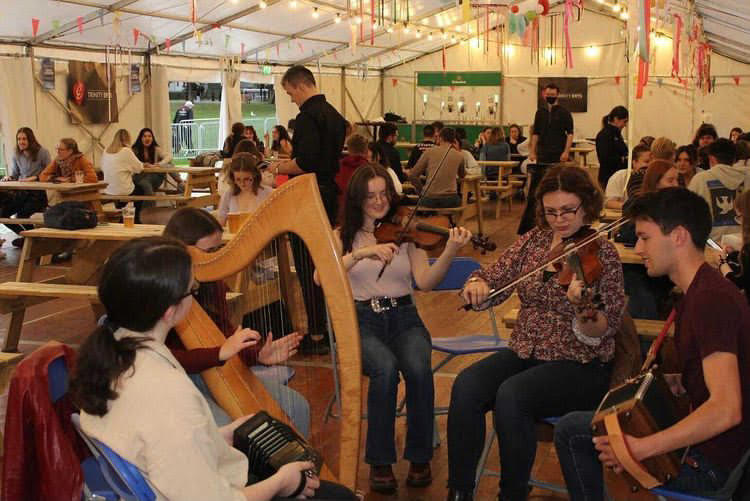
In the immortal words of Trinity’s Traditional Music Society (TradSoc): “Trad is rad.” It seems Dublin couldn’t agree more. Irish traditional music is a genre that has been around for millenia, and it is most often played using fiddles, concertinas, flutes, tin whistles, harps and bodhráns, the last of which refers to a handheld drum traditionally made of goatskin.
When mentioning the trad scene in Dublin, most people’s minds jump directly to Temple Bar, with its tourist-filled pubs and cobblestone streets in their imaginations. While this area of town should not be underestimated for its power to draw in visitors, readers may rest assured that trad can also be enjoyed without shelling out €12 for a pint.
Chaplin’s on Hawkins St is one of many bars near Trinity that offers trad nights, sometimes hosting our very own TradSoc for sessions on weekdays. Other bars and venues frequented by TradSoc include Conradh na Gaeilge, O’Donoghue’s and Meaghers, where all members are encouraged to join in on the fun atmosphere. Cassidy’s on Camden St also hosts open trad sessions every Wednesday from 8pm for those interested.
Of course, trad is not exclusively found in Dublin’s pubs – it also sells out larger venues. One of Ireland’s biggest folk groups, the Wolfe Tones, are set to play two shows in the Olympia Theatre this October and November. It is a testament to their ongoing popularity that the first date is already sold out.
A newer group, albeit one that is gaining the same level of popularity, is Lankum, made up of artists Radie Peat, Cormac MacDiarmada and Ian and Daragh Lynch. They are most notable for capturing a phenomenon of trad music which is especially prevalent in Dublin: the mixing of contemporary genres with the strong sense of history and identity that typifies trad. Lankum themselves use electronics to complement their sounds, and they don’t hesitate to mix in punk rock either.
Dublin can be a hotspot for this new take on an old genre. For example, Whelan’s on Wexford St is offering gigs by Anna Mieke, who is one of the leading figures of a genre known as alt-folk, as well as Aoife Nessa Frances, who has been called a pioneer in psych-folk.
Change is also visible in other forms. While the trad music scene has sadly not remained free from controversy around sexism and misogyny, campaigns like FairPlé have been set up to promote gender equality in the scene, often collaborating with charitable events hosted by the Dublin Rape Crisis Centre and Dublin City Council’s Brigit 2022 initiative.
So, how does trad music look in Dublin in the 21st century? The answer is both the same as always and newer than ever. With the unique way in which it can blend history and contemporary sound, it is a genre that will surely inspire enthusiastic players for generations to come.






